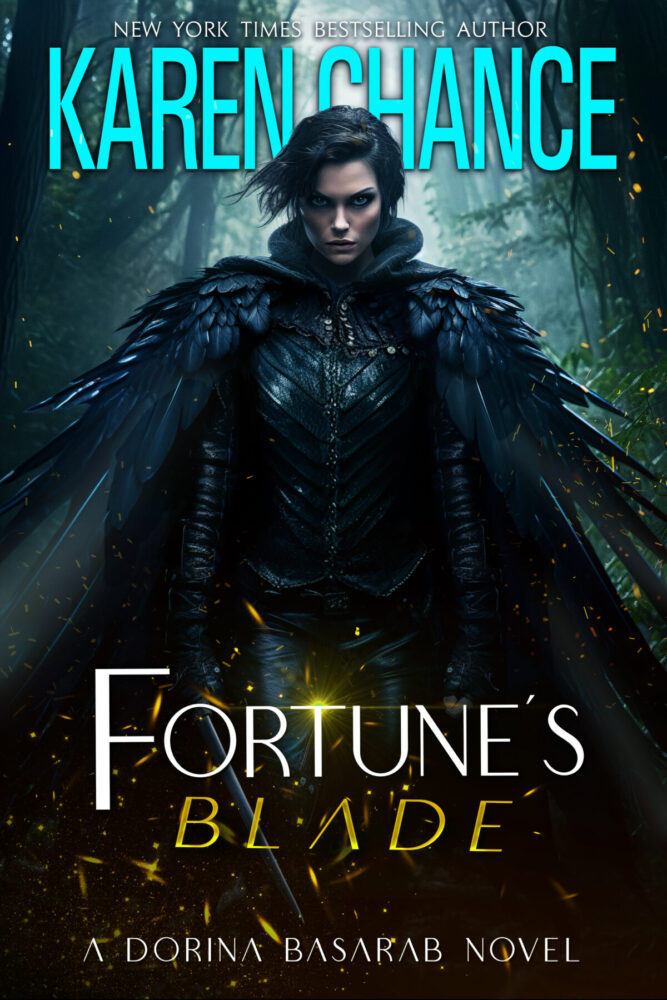Please don’t read the following if you have not read Queen’s Gambit. It contains spoilers.
1) Hassani’s court seemed more family-like. In comparison to Dory’s consul, Hassani’s people seem to regard him with love, respect and earned loyalty (like someone who fought alongside you, for you, earning your loyalty) versus the fear and distanced and higher-than-thou feeling I get with the Consul’s leadership. Why is the dynamic at Hassani’s court so different from the Consul’s?
You saw why in the flashbacks, and just reiterated it here. Hassani and his people went through hell together, which created a bond. Plus, Hassani is a very different person than the American consul. She rules through strength, intimidation, and also because she is a natural ruler. Her people see her as good at what she does, and most respect her. But there’s a healthy (from her perspective) dollop of fear in there as well. Hassani doesn’t need that. He and his people fought something far scarier than the consul once and beat him. After that, intimidation is superfluous.
2) Why was Dorina paralyzed when the fey zapped her? Is it some sort of Achilles heel for her, built in during the fey experimentation the same way the sun and wood vulnerabilities were built in for vampires?
Dorina can be injured, just like anyone else. She isn’t invulnerable, and the fey hit her with enough energy to have left most people paralyzed for life. But her body regenerates quickly, and she was already healing herself by the next day, even before Nimue sped up the process.
3) Dory mentioned how she never considered herself beautiful before LC and how she just used her looks as another tool in her toolbox for hunting. She also made it clear in the first chapter of Queen’s Gambit that she perceives LC to be more attractive than her. Does Dory have body image/ self-esteem issues?
No, Dory is well aware that she is attractive. She uses it in her work when it would be helpful. She just doesn’t define herself by her looks, because whether or not a dhampir is attractive is beside the point for most people. She’s still considered a monster, and treated as one.
4) I really love the way you paint LC and Dory’s relationship: it’s not too fantastical, it’s messy and it’s real. It’s two people who care enough about one another to work on their issues and fix their relationship. I wonder about other aspects of their relationship: what are LC and Dory’s love languages? I’m talking about the 5 love languages coined by Gary Chapman. LC seems to touch Dory a lot, would his be Physical Touch? What else? What about Dory?
LC’s is probably quality time, and Dory’s acts of service. But they’re on their honeymoon in this book, so a little touching is understandable!
5) Why did Marlowe get so nervous when he realizes it’s Dorina in the tent and not Dory? Is he scared of Dorina? He seems to act so weird around her, even being nicer to Dory after he meets her in Dragon’s Claw.
As far as Marlowe knows, Dorina is a first level master vamp, or the near equivalent. And when meeting a new first level master, caution is recommended. He doesn’t know Dorina, but he does know Mircea, and although he and Mircea get along well and might even be called friends, he is not blind to how powerful Mircea is. In fact, Marlowe is one of the few vamps who probably has a pretty good idea exactly how much power the consul’s Second is hiding. The correlation is that Dorina might be similarly gifted, not to mention being dhampir, the vampires’ hated and feared nemesis. So, from Marlowe’s perspective, what does he have here? A dhampir at least as powerful as a first-level master, and maybe more than most if she takes after her father. He isn’t being a coward. He’s being smart and cautious until he understands what she can do.
6) It’s no secret that Cassie has a serious love of food. I also know you don’t base your characters off of anyone including yourself. But was this trait maybe the one exception to the rule? Do you or someone you know appreciate food as much as Cassie does?
Not really. I mean, everybody loves food, right? But the reason it’s in the books is a small in-joke. Back when I was a new, wet-behind the ears author, I used to read reviews. I thought it was part of my job, you know? Give people what they want, only I didn’t know what they wanted. So, I would read reviews of my work to try to figure it out. Yeah, I know. But I was new, okay?
Anyway, one of these reviews was complaining about everything. Now, of course, after many years of experience, I would able to interpret that correctly. I would read it as what it was probably saying (give me the romance novel I thought I was buying, damn it) instead of what it actually said. But then, I didn’t have that experience, and tended to take things at face value.
So, anyway, I get this review, talking (among other things) about how nobody ever eats in my books. Which puzzled me, because there’s been scenes of people eating—because eating is a thing people do—from book one. But I just thought, hey, they like reading about food. That’s easy; I can do that!
By the time I eventually wised up and realized that I was being trolled, I found that the food scenes had become a kind of expected thing, like Cassie’s tarot cards or her T-shirts, and were looked forward to by some readers. I kept them up, trying to come up with new and creative things to do with food, both for the people who now expected it, and because I thought it was funny. So, thanks, troll person! You accidentally gave me yet another quirky facet of the Cassie books that some people really enjoy.
7) What month are we in now? It obviously takes place after the Day of the Dead, so November or at the earliest. But it seems like Tomas and crew have been working for Zheng for at least a few weeks or months. This suggests December or later.
Late November/early December. It changes during the course of the story. The Day of the Dead is in late October/early November, so it’s been about a month for Tomas and crew since then. They heard that jobs were plentiful in Hong Kong after the battle, and went to try to make a fortune.
8) Dorina is revealed to be a fey experiment capable of killing powerful beings. If this is so, why did she believe she couldn’t take on Caedmon in Shadow’s Bane?
Because she didn’t know who she was then, and what she can do. She still doesn’t, although she knows more than she did, and that there are other things to be learned. Before, she thought she was just a dhampir, and no dhampir was likely to stand against Caedmon, a King of the Light Fey. Now she might feel differently.
9) Will Dory and LC move in together in their own home? LC seems sick of the lack of privacy.
The relationship issues in this book were all centered around a theme: learning to trust. Louis-Cesare and Dory had been alone for a long time. They’d both become used to it, and made accommodations for it, so trusting a partner was hard. Louis-Cesare had to learn that Dory could be trusted to keep herself safe, and to make big family decisions without him constantly butting in. That seems like a no-brainer, but then, he’d been making the hard calls and protecting his family alone for hundreds of years. It was a reflex by this point, and one she had to call him on.
Dory, for her part, was also skittish as hell, despite preaching to LC. It was more subtle in her case, because most of the triggering events were hitting his vulnerable areas more than hers, and because she spent a lot of time worried about Dorina. But the sense of unreality she kept having—about being accepted at a vampire court, about making a friend there, about having LC beside her in their bedroom scene—indicated that she wasn’t truly settled into her new role.
Dory had, after all, played a lot of roles in her lifetime, for short-lived missions. Her relationship with LC was not going to be short-lived, however, and you see her slowly realizing that as things go on. It was why she said what she did about the bath. She liked the big tub at Hassani’s, but knew it wouldn’t fit into Claire’s place, like she no longer really does.
So, yes, she’s likely to be more willing to move homes now, having begun to see that this marriage isn’t a temporary mission but an actual life change.




Leave A Comment